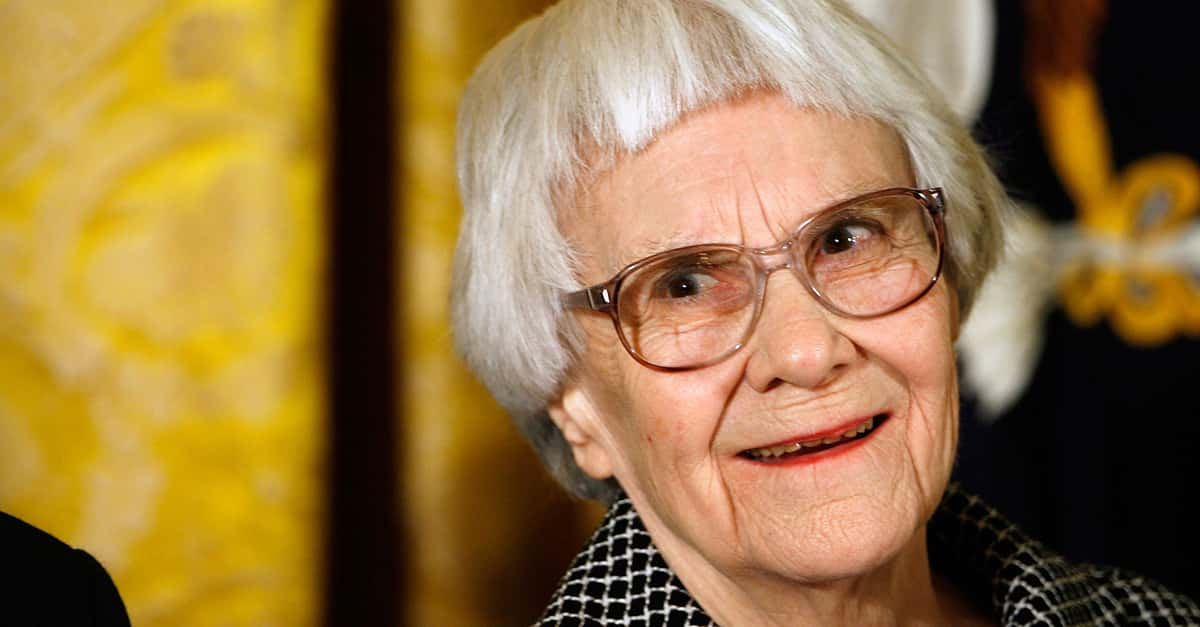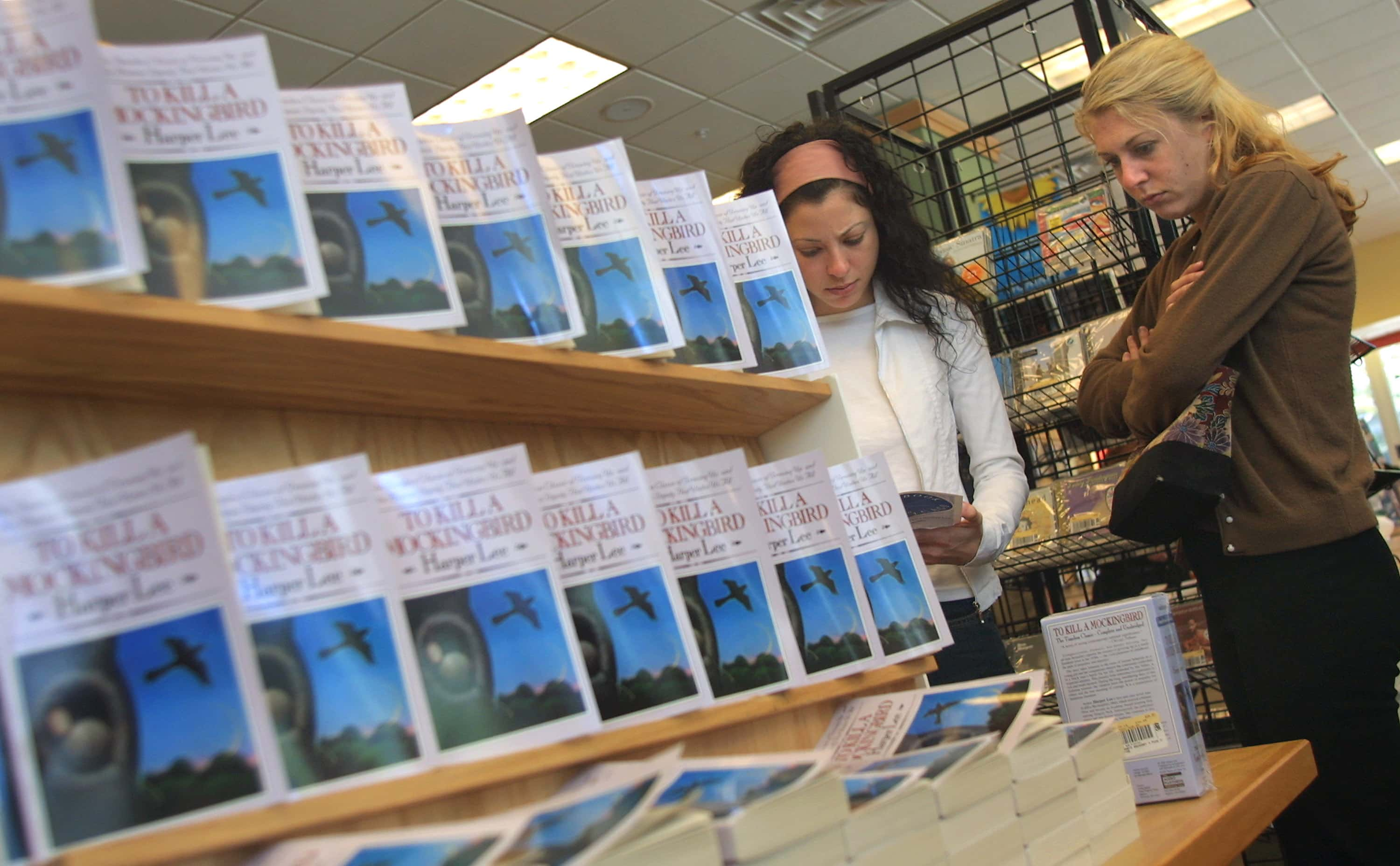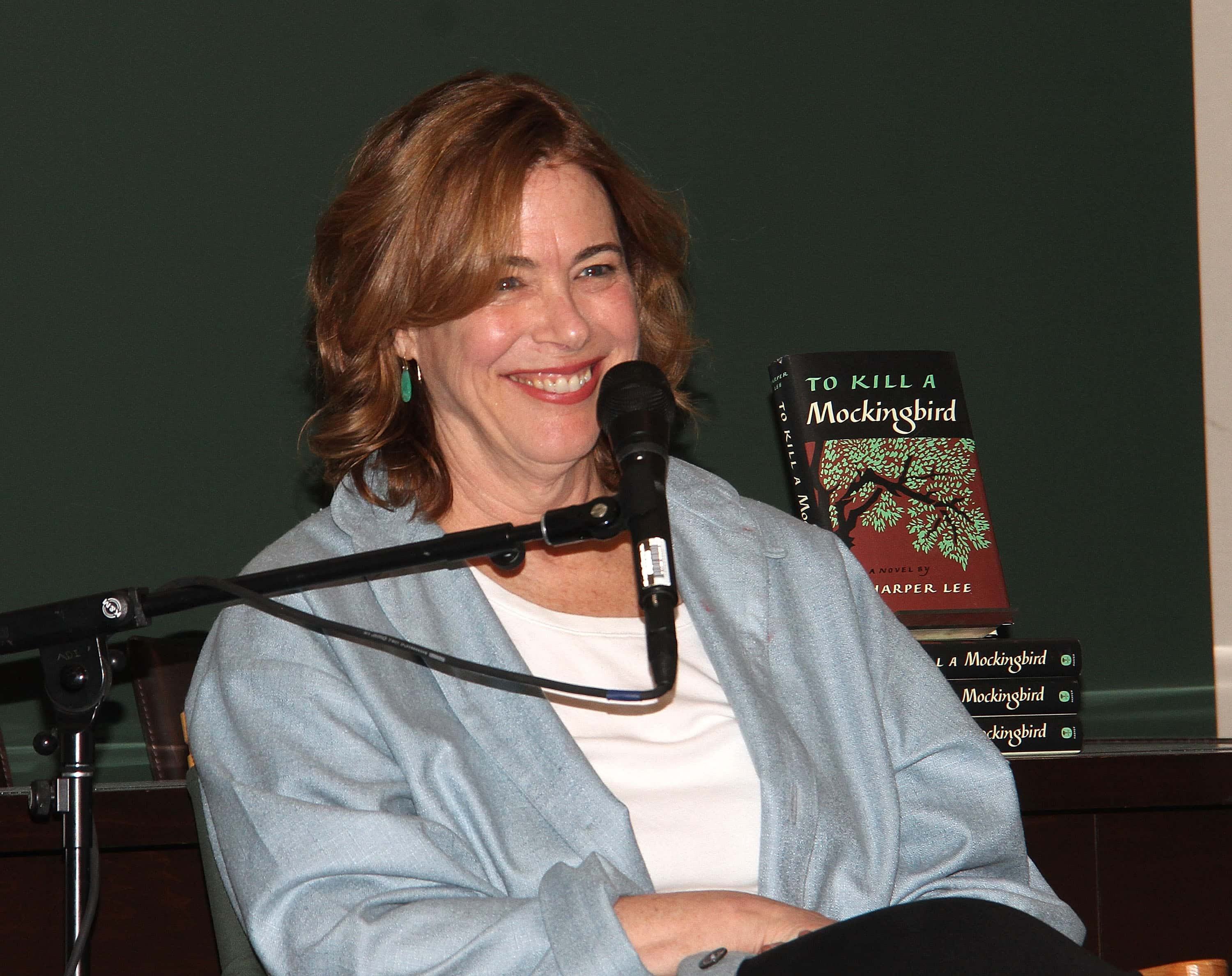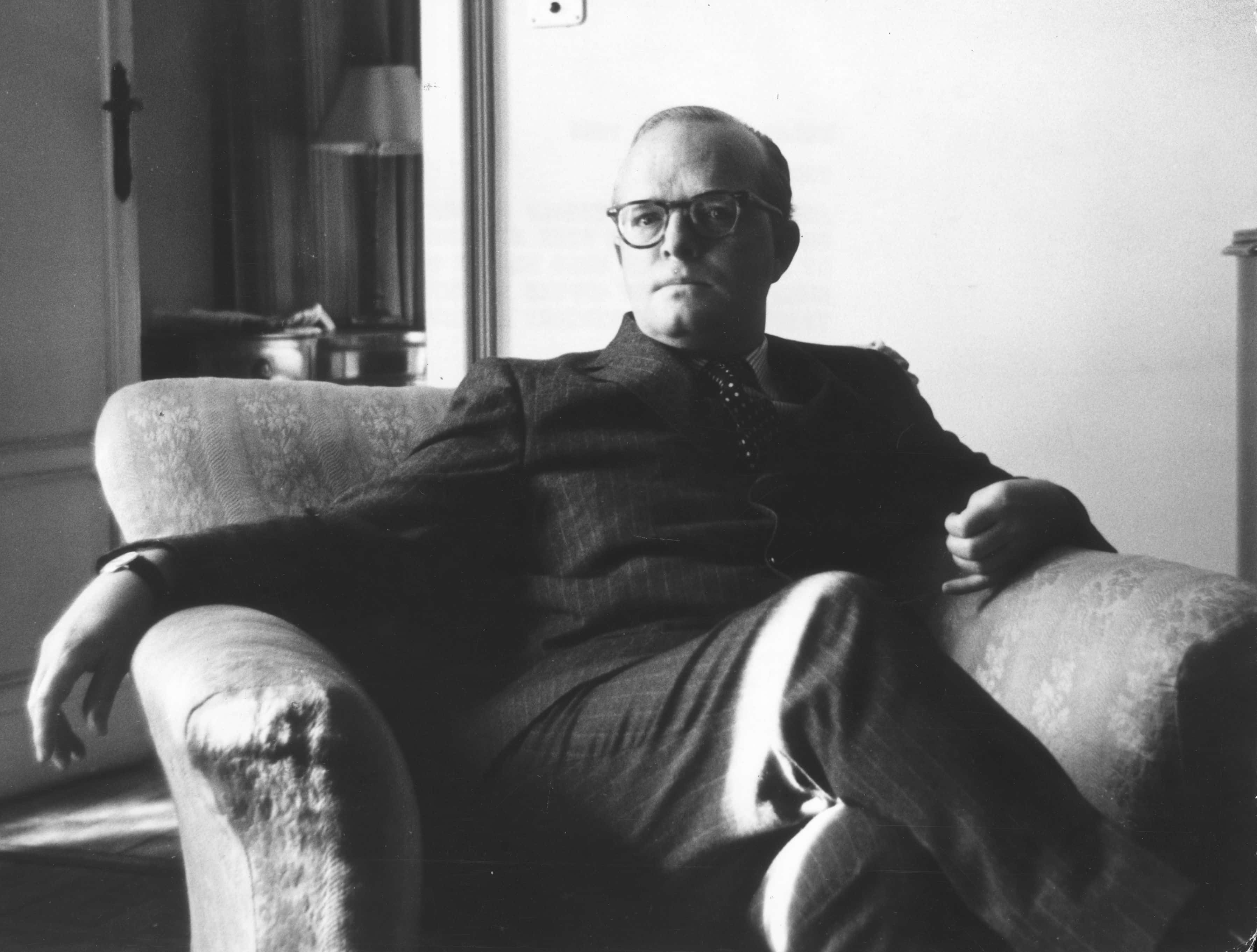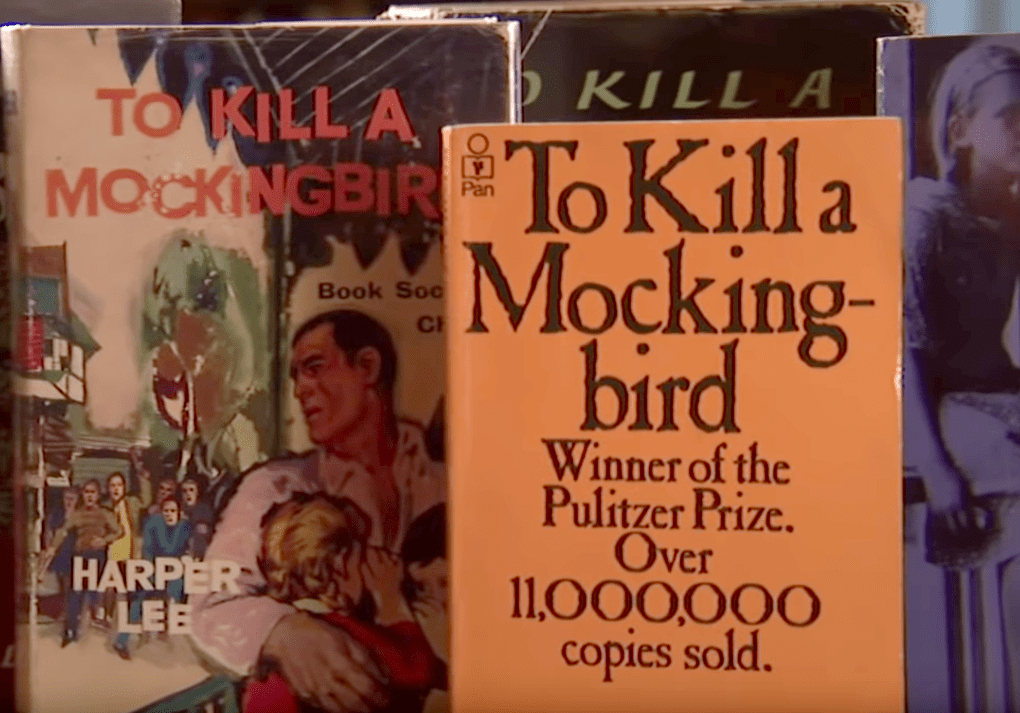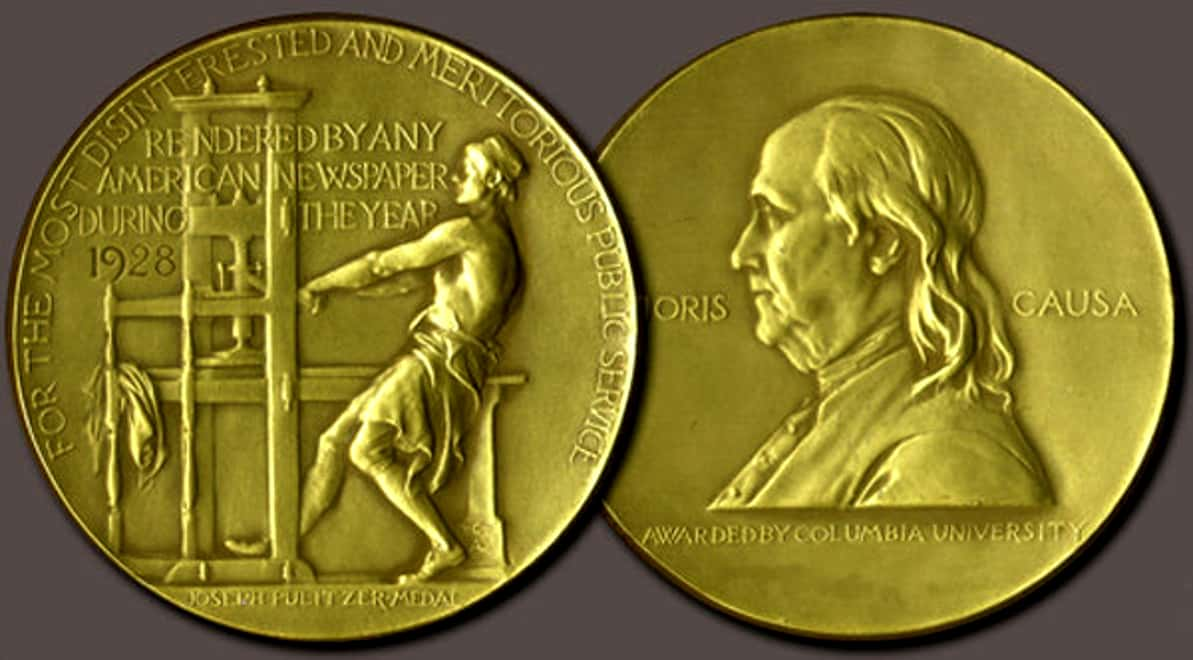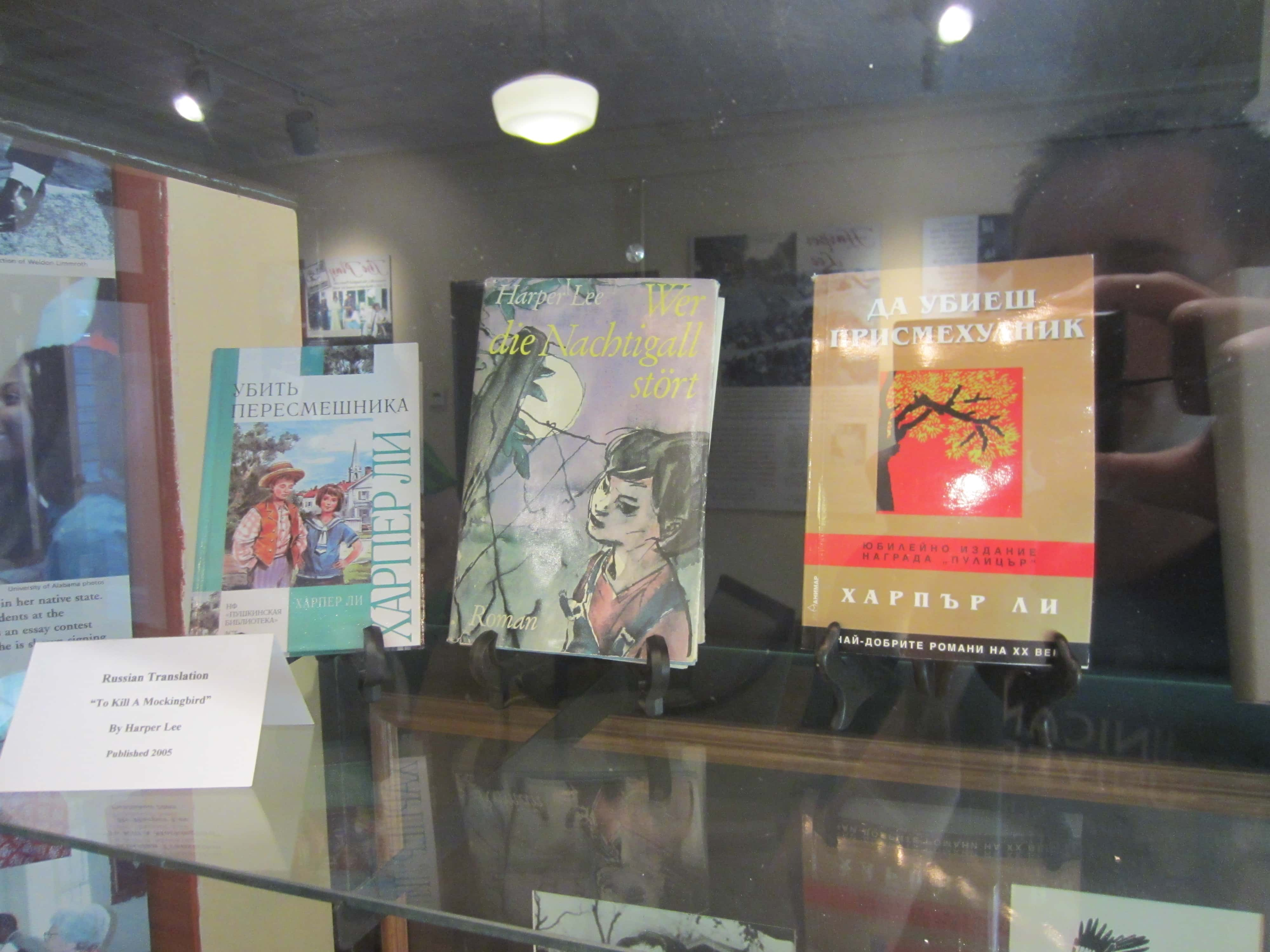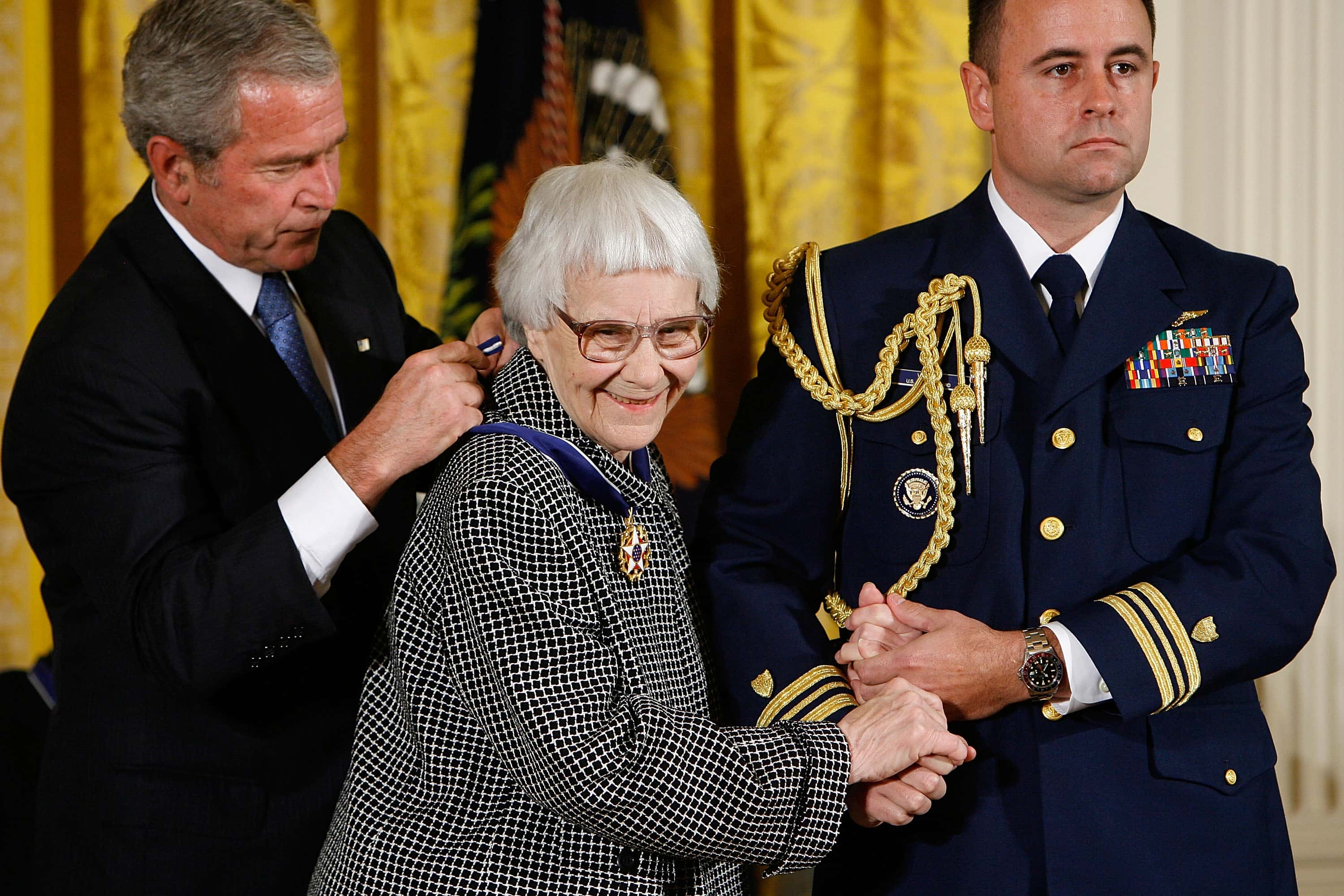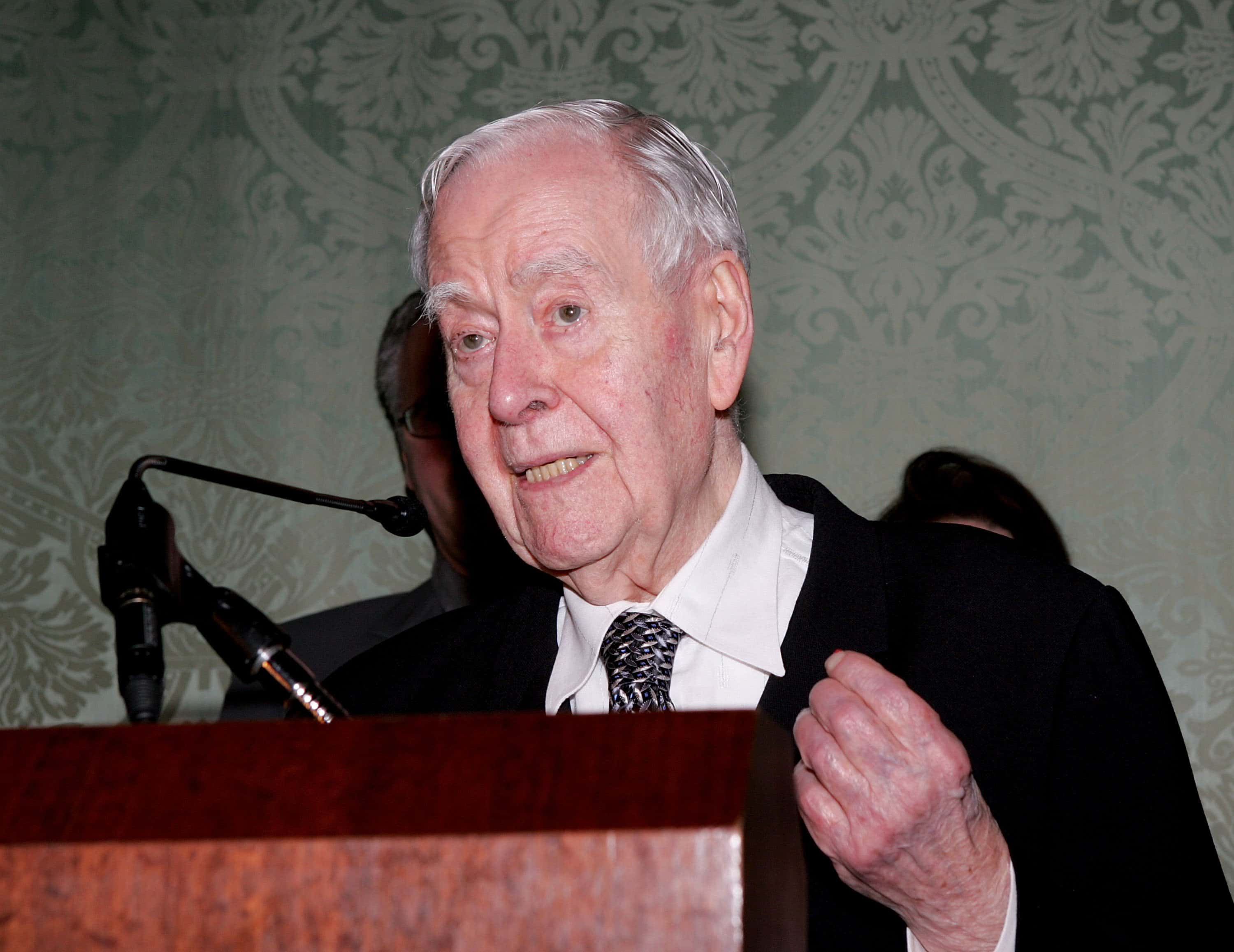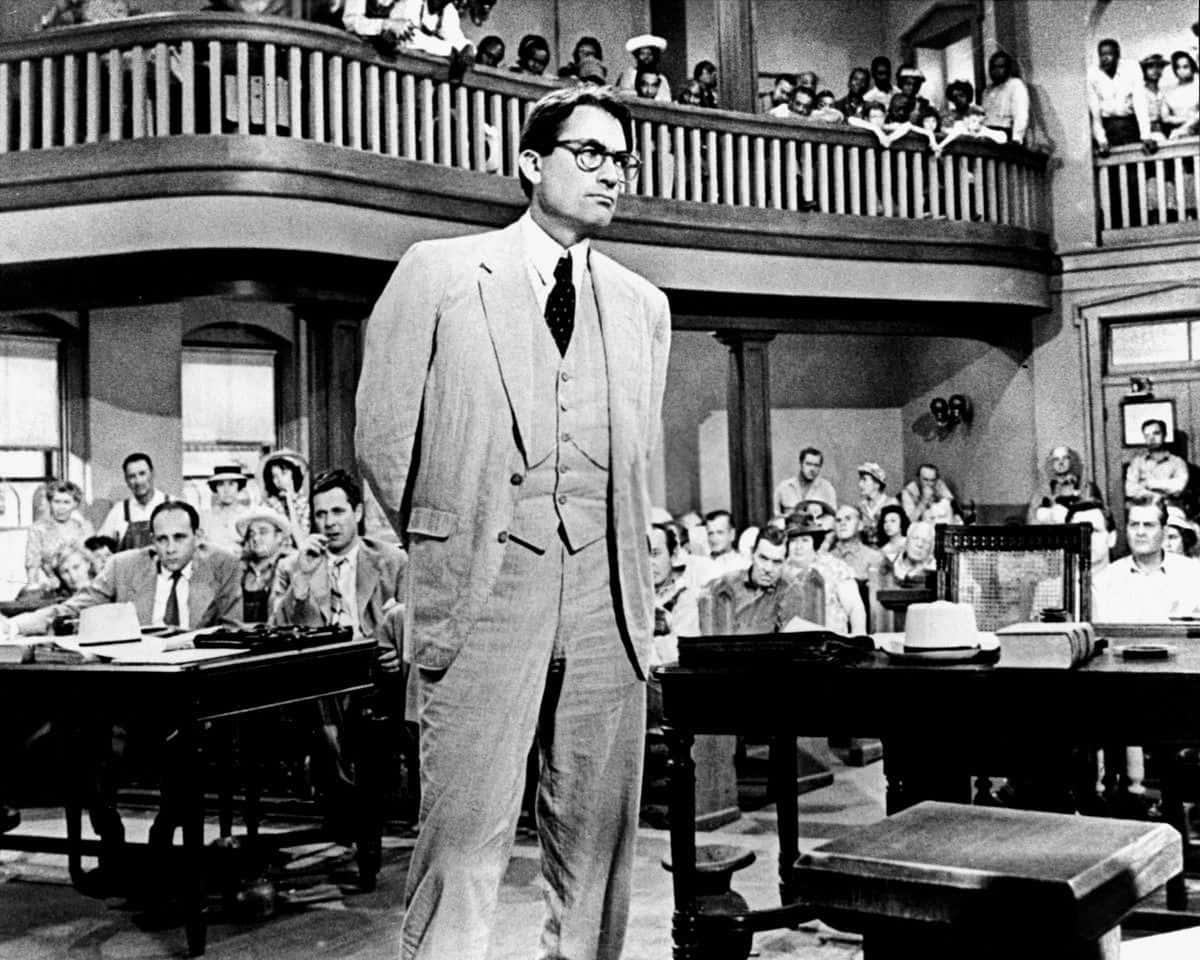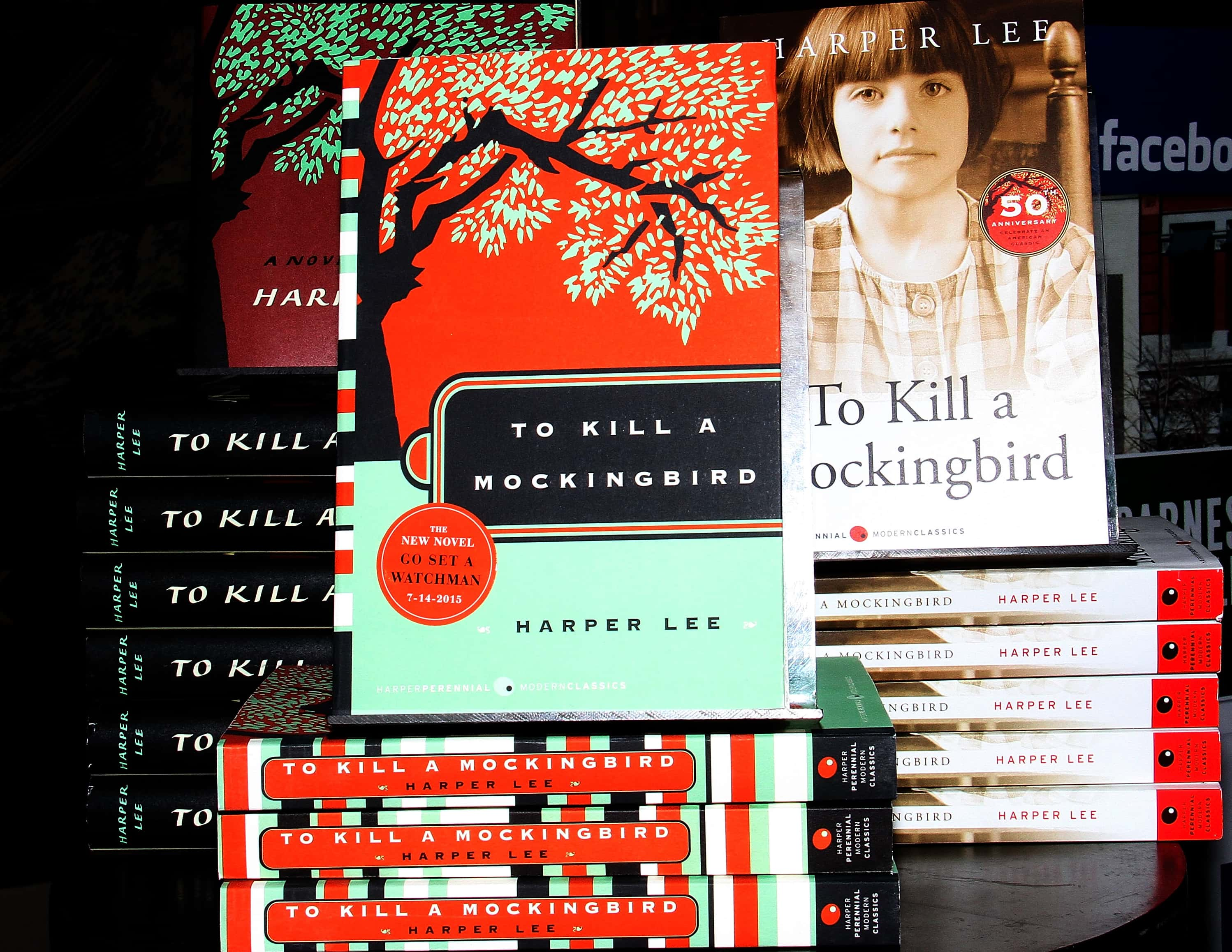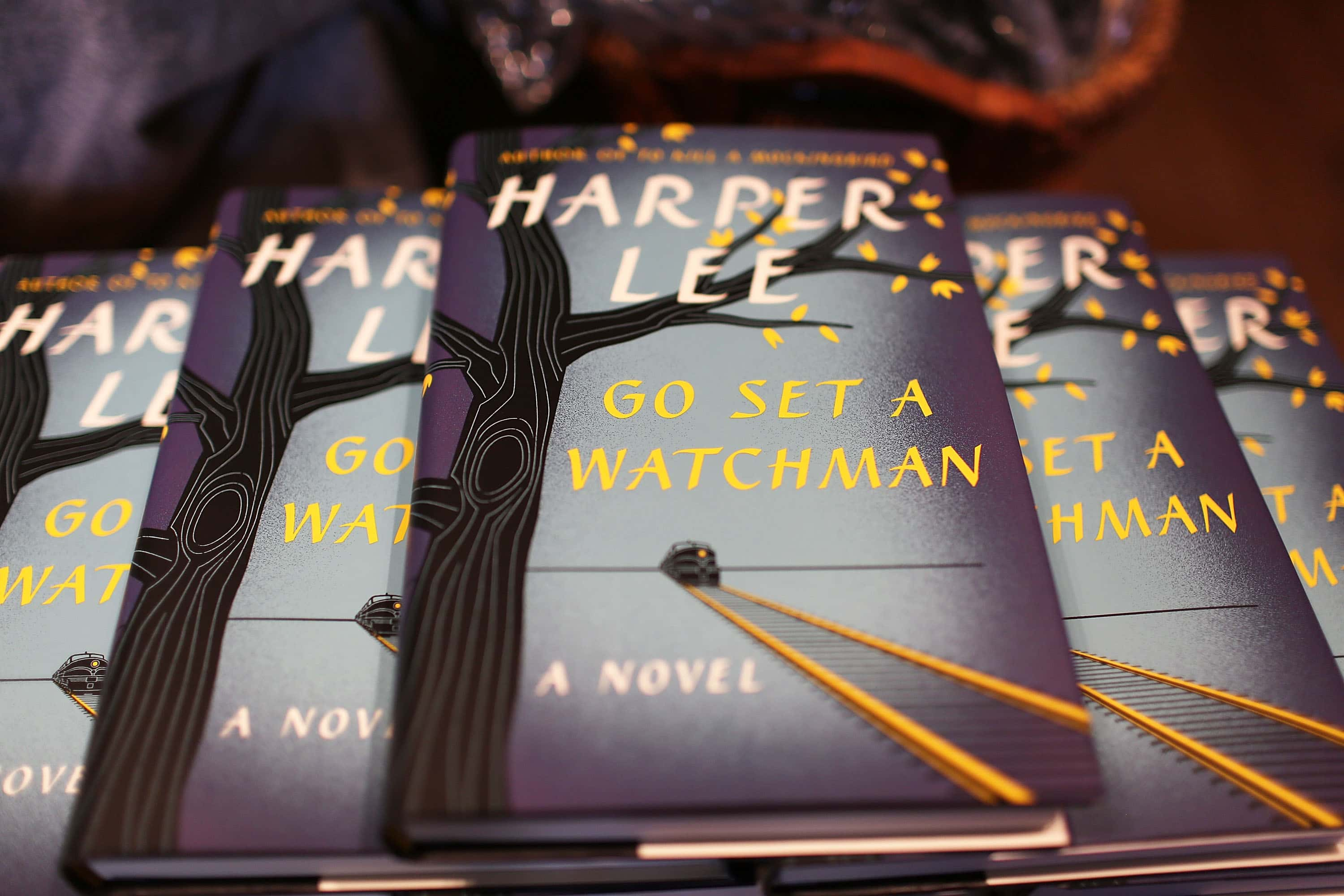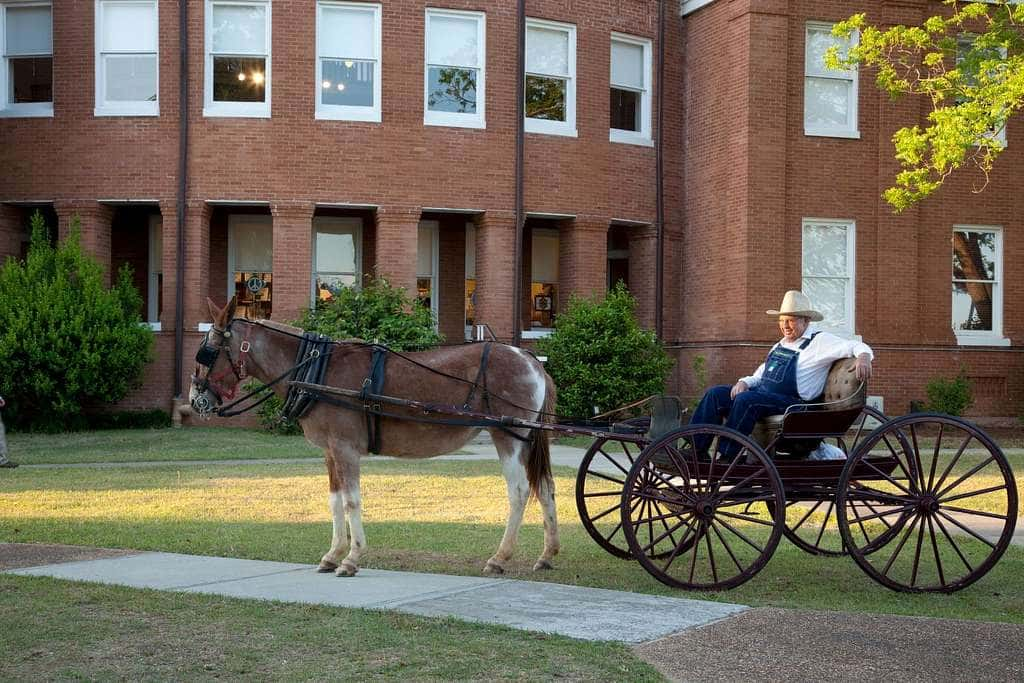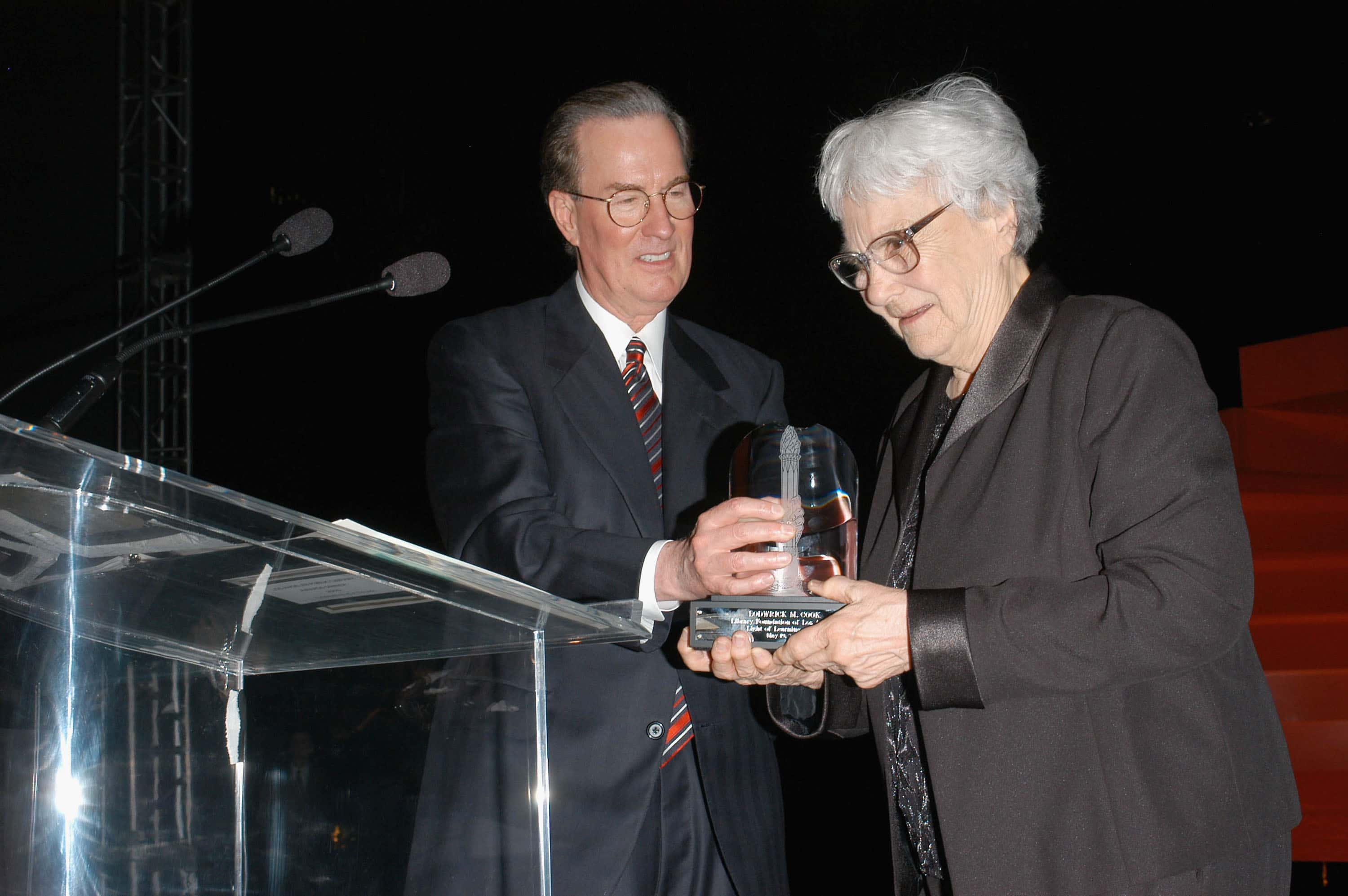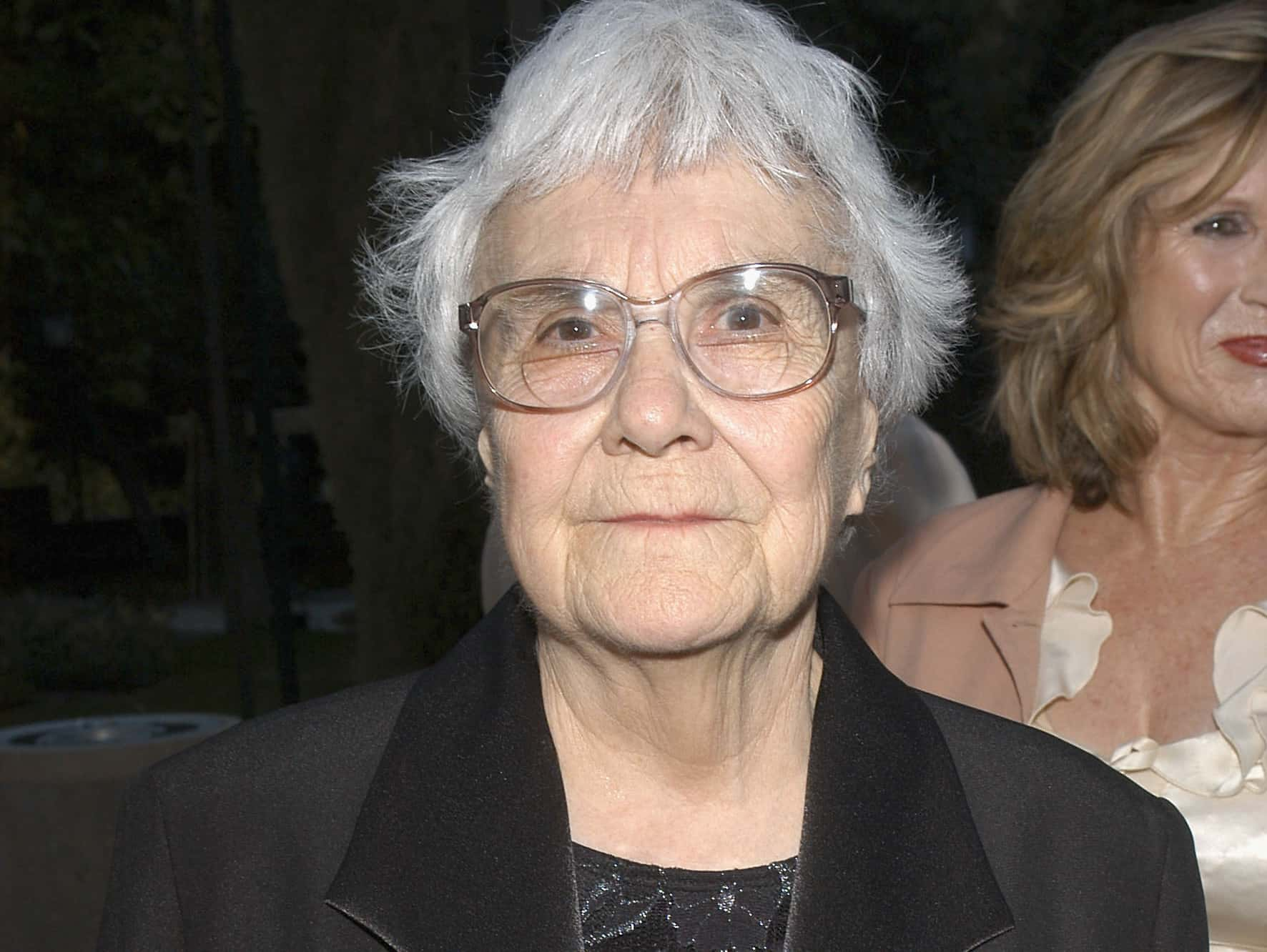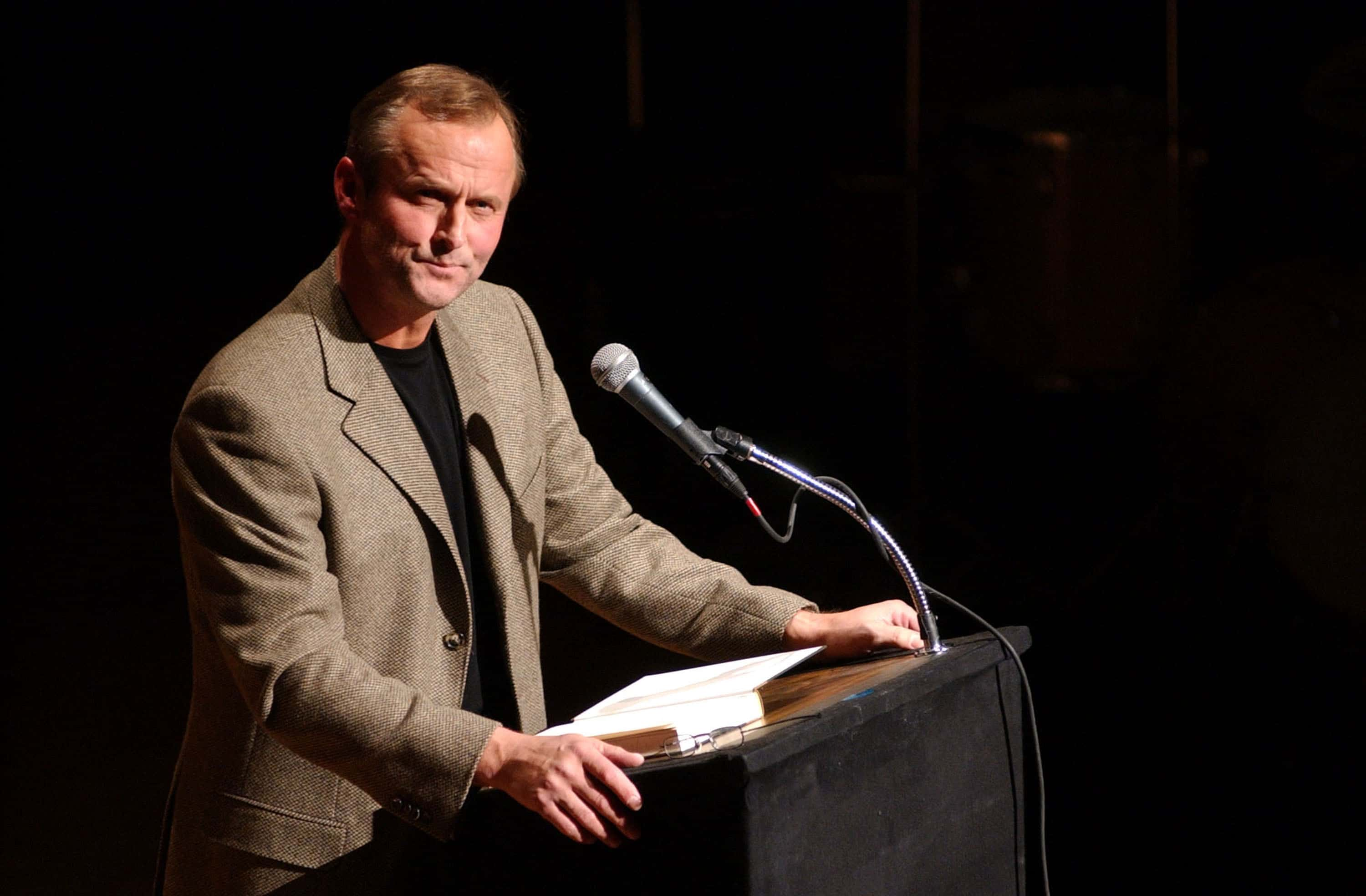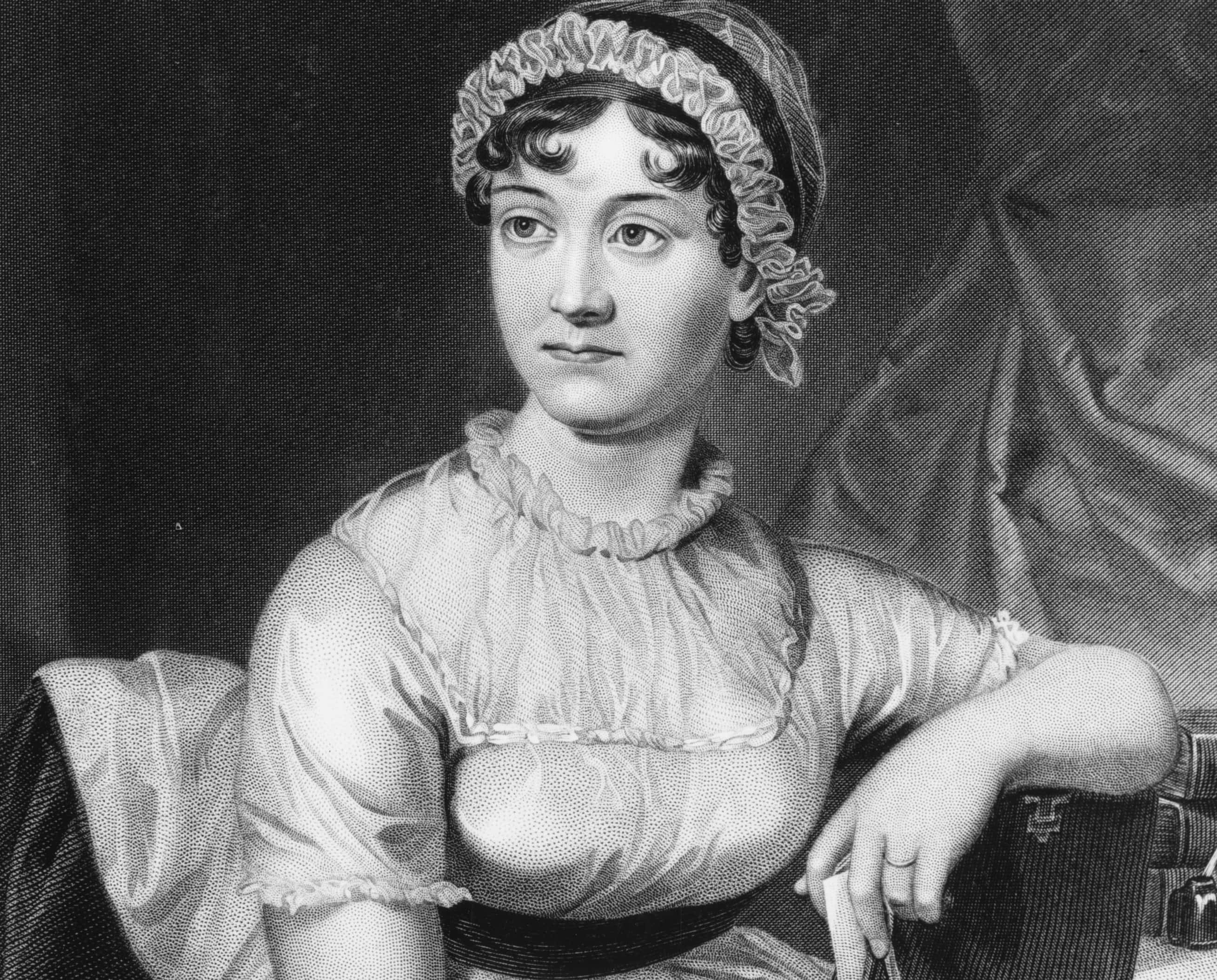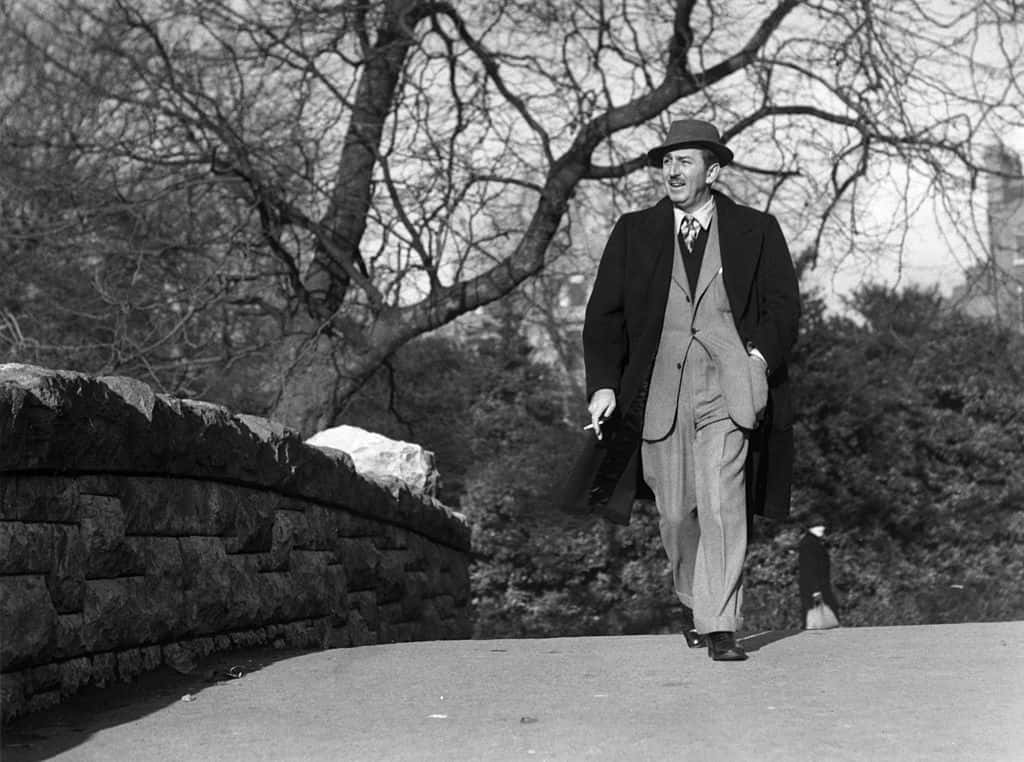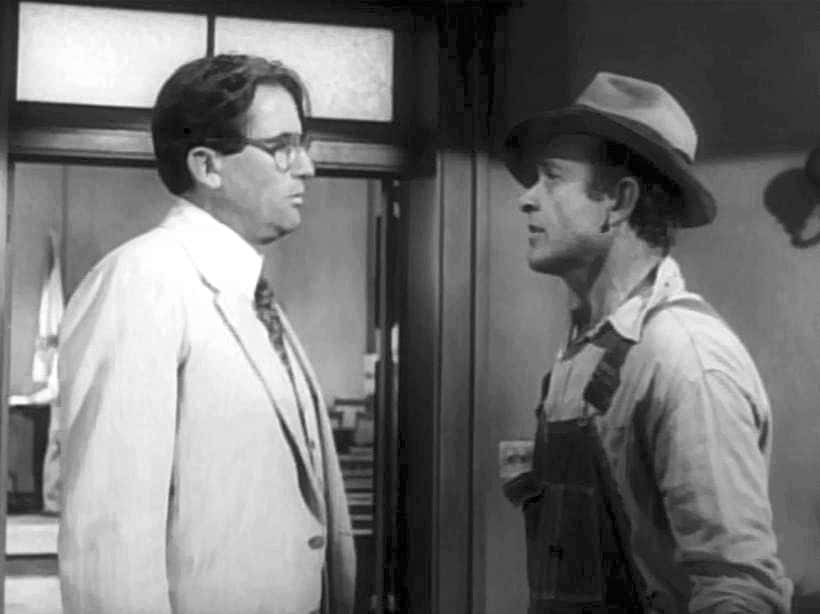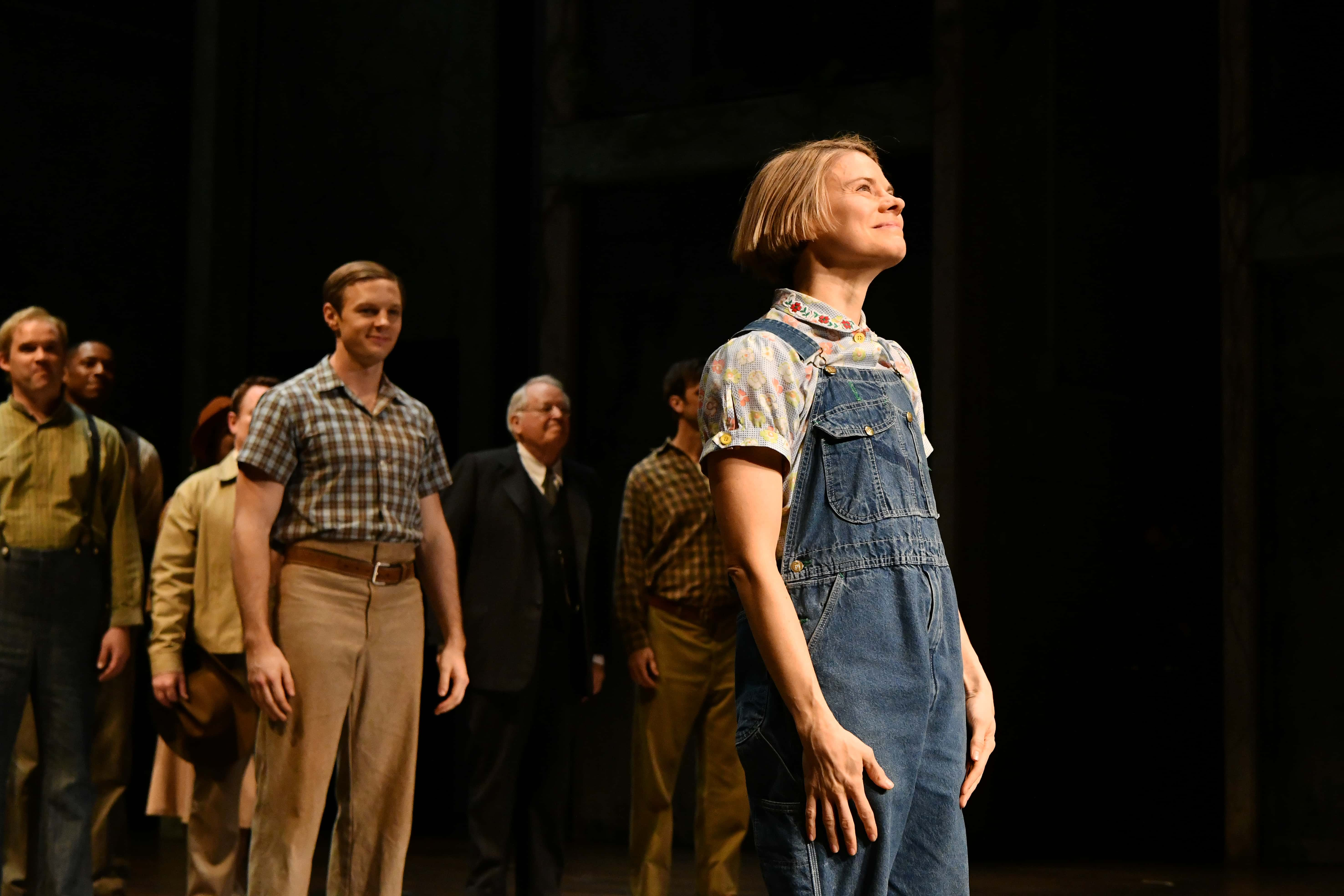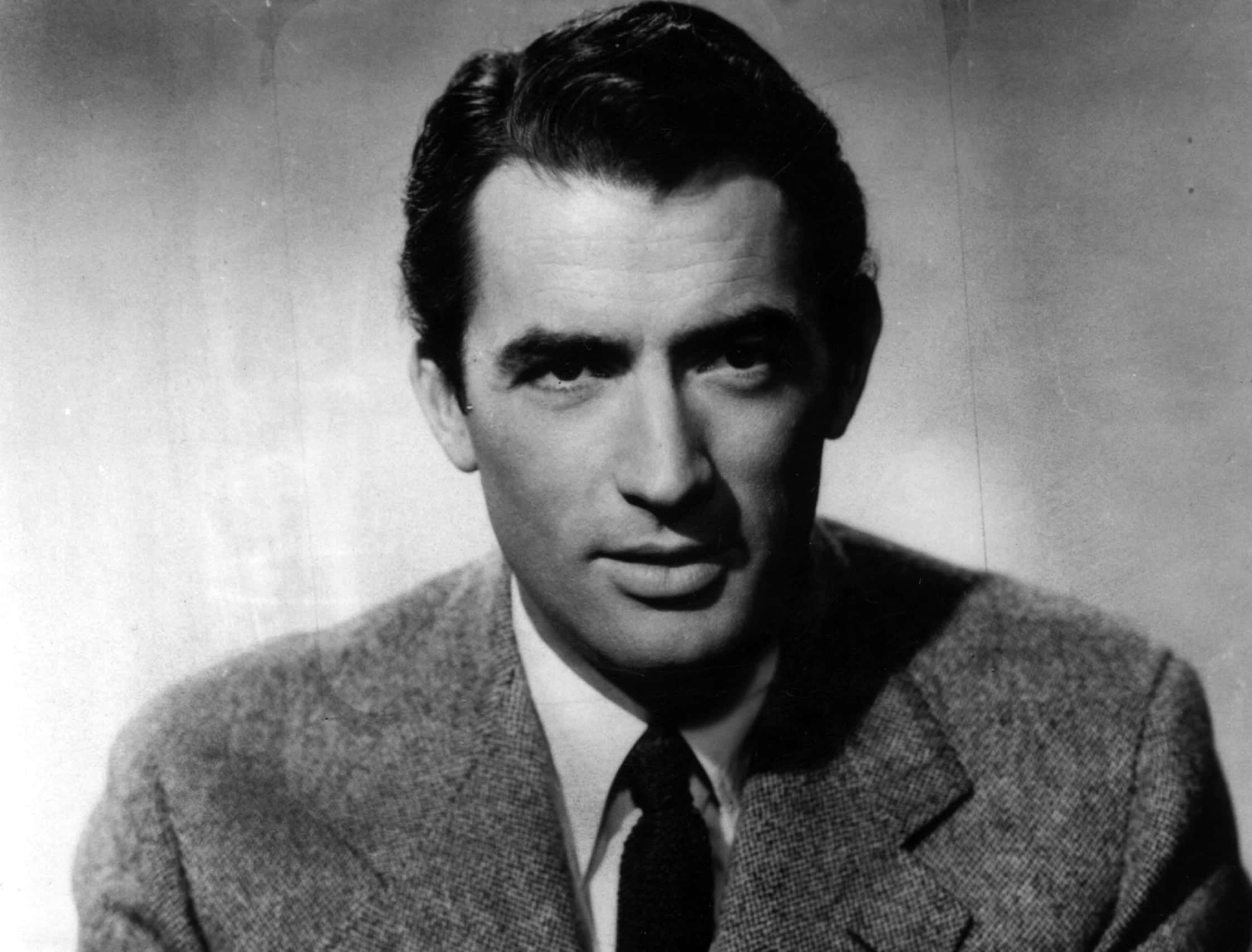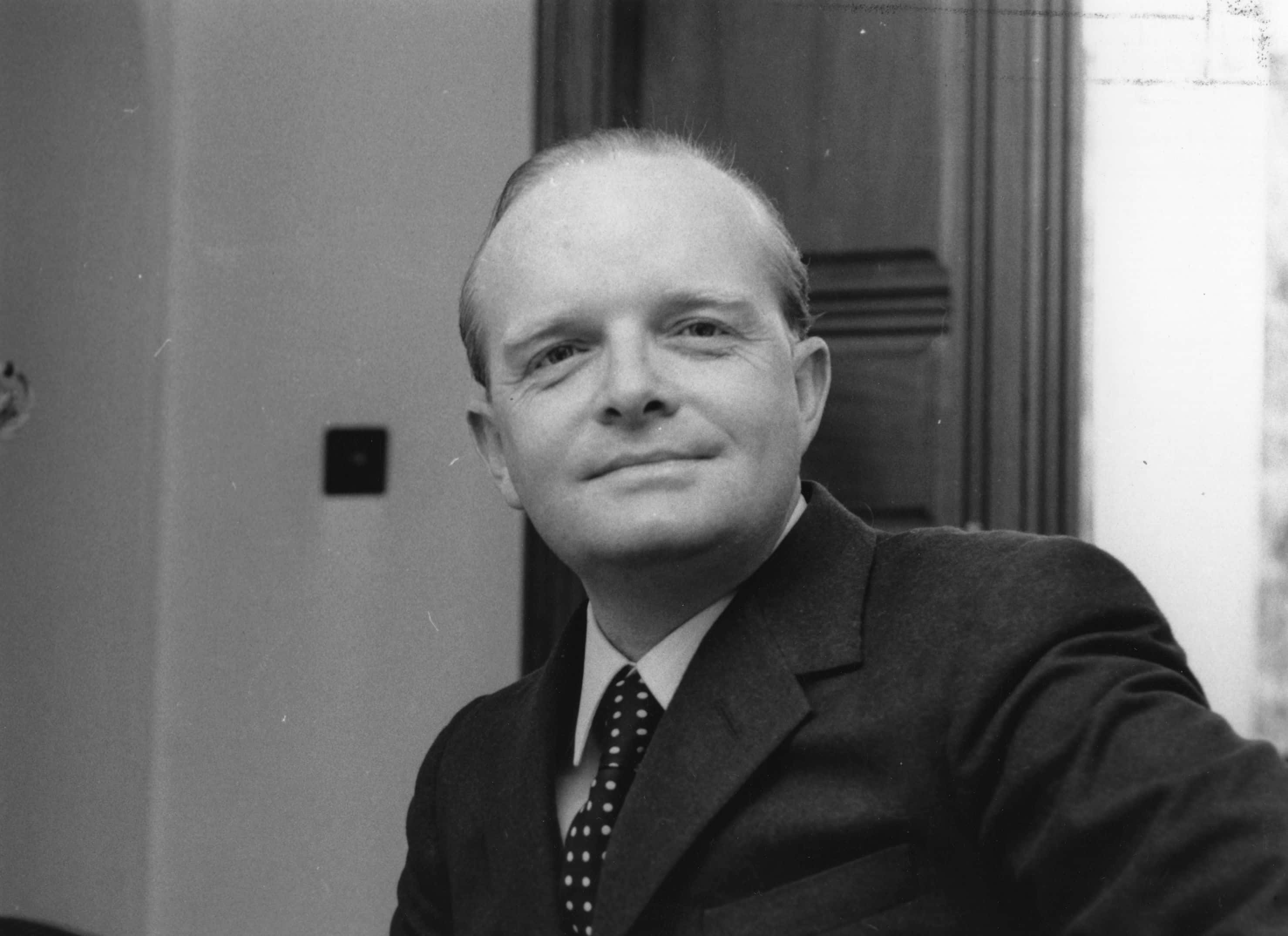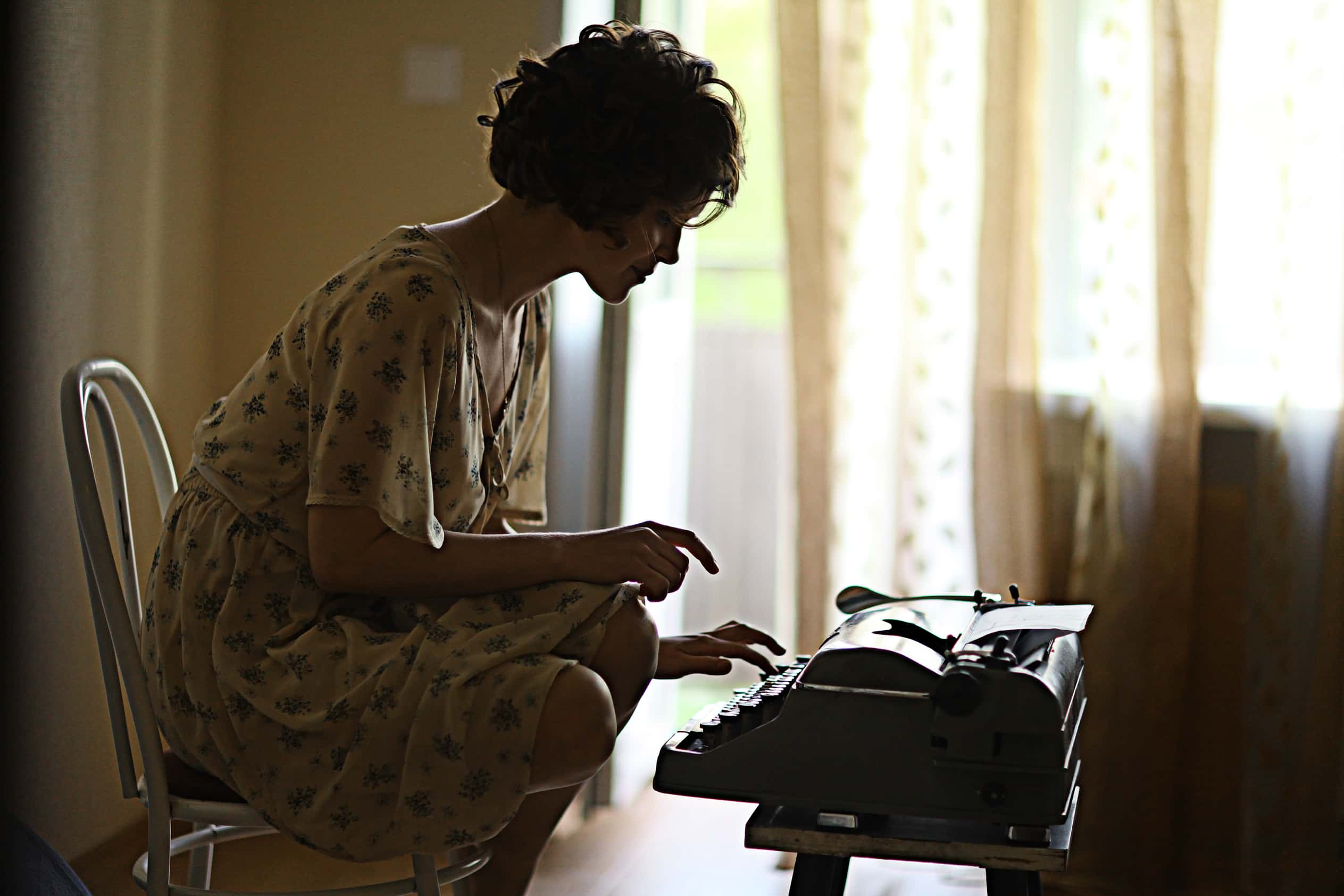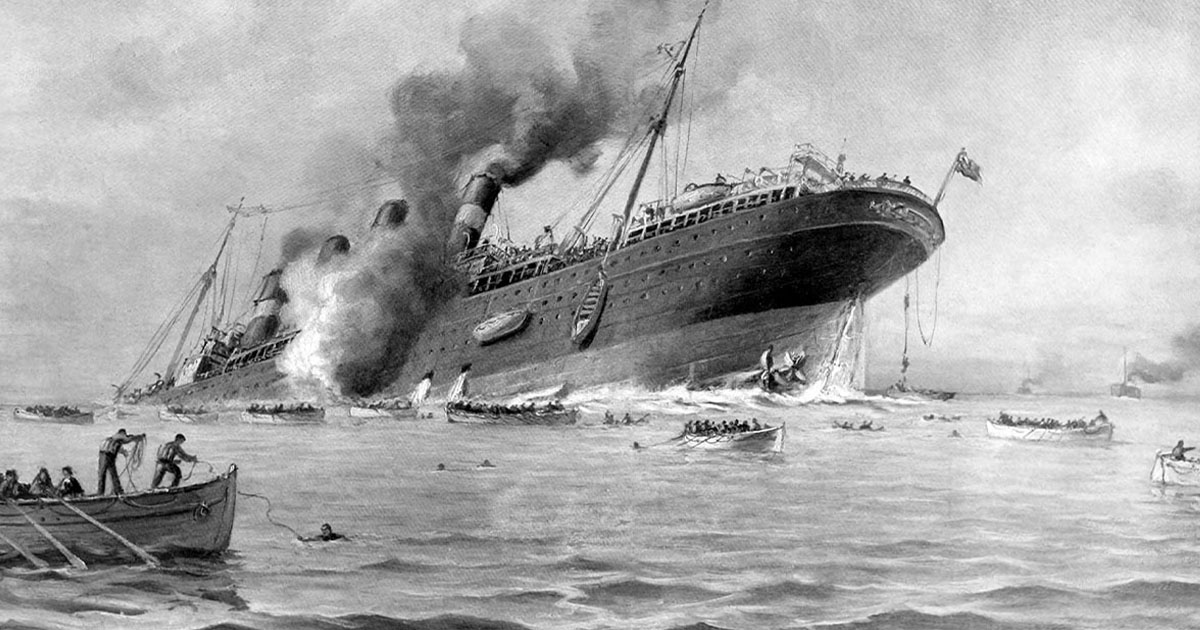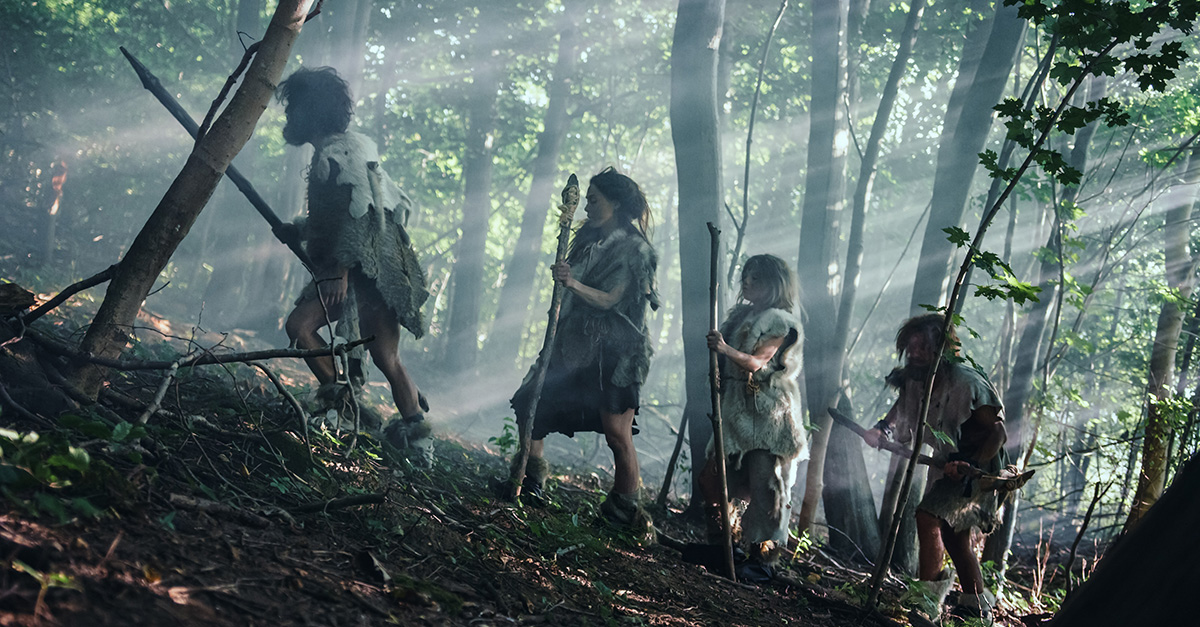“You never really understand a person until you consider things from his point of view... Until you climb inside of his skin and walk around in it".― Harper Lee, To Kill a Mockingbird
To Kill a Mockingbird is a Pulitzer Prize-winning novel by author Harper Lee. Published in 1960, the novel became an instant success and has been popular around the world for more than 50 years. Today, the novel continues to have a place on school reading lists in America and abroad and is considered one of the greatest novels of all time. It has also been adapted into an Academy Award-winning film, and recently, a successful Broadway play. Below are 42 facts about the classic novel.
1. Inspired by Life
Harper Lee loosely based the novel on a true event that took place in her hometown of Monroeville, Alabama when she was a child, and the characters are inspired by her observations of her family, friends, and neighbors.

2. Making Millions
Even well into the 21st century, To Kill a Mockingbird was still selling between 750k-1 million copies a year, earning Lee royalties of nearly $10,000 per day in the first half of 2009. That’s a tidy little sum.
3. Too Focused
Lee toyed with naming the book Atticus as a reference to the novel’s hero, but ended up changing her mind because she was afraid it would make it seem like it was only about one character.
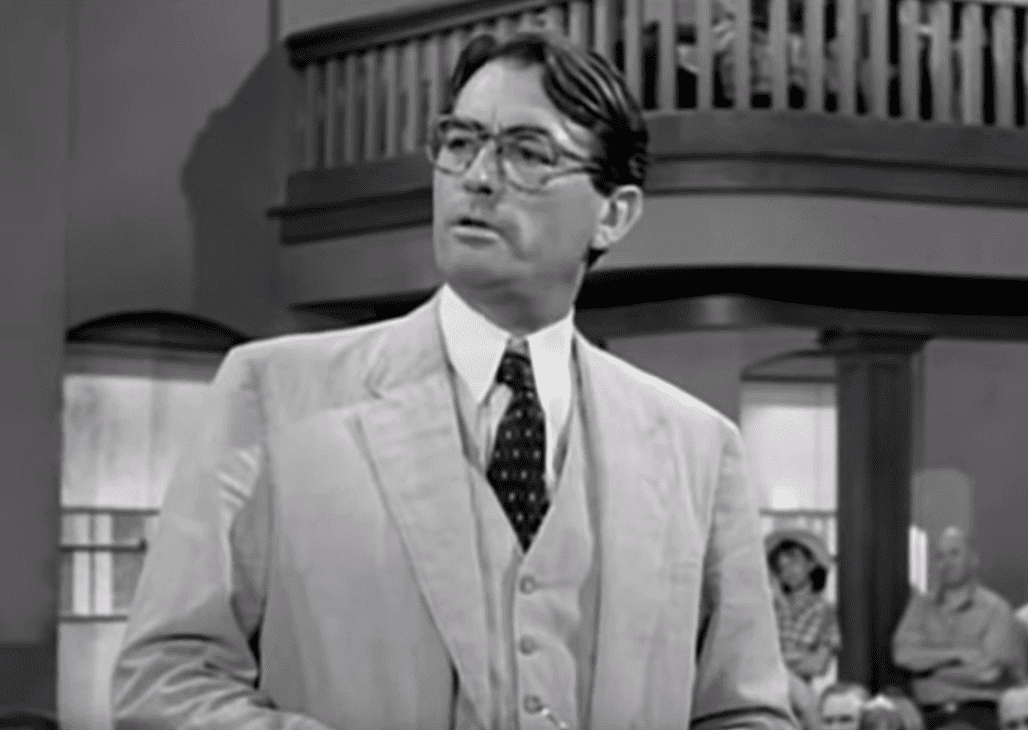 To K. a Mockingbird (1962), Universal International Pictures
To K. a Mockingbird (1962), Universal International Pictures
4. Moral Journey
The bildungsroman is a device used in novels and television shows to follow the moral, intellectual, and psychological growth of a young adult over time. To Kill a Mockingbird fits into this category in that it chronicles Scout’s growth through her interactions with the other characters in the book.
 To K. A Mockingbird, 1962, Universal Pictures
To K. A Mockingbird, 1962, Universal Pictures
5. Golden Anniversary
In 2010, To Kill a Mockingbird celebrated its 50th anniversary, with parties being held across the United States to mark the occasion, including a special reading by members of the community at the courthouse in Lee’s hometown of Monroeville.
6. Just Like Dad
The character of Atticus Finch was inspired by Lee's lawyer father, Amasa Coleman Lee, who bore similar traits to the pivotal character. The character of Dill was also drawn from real life and was based on her lifelong best friend, who also grew up to be a writer. That man's name was Truman Capote.
7. Modified Name
Lee’s full name was Nelle Harper Lee, which was the backwards spelling of her grandmother Ellen’s name. She decided to drop the Nelle for publication not because she didn’t like the name, but because she was afraid that readers would mispronounce it as Nellie.
8. Hey Boo
As part of the 50th-anniversary celebrations, famous authors, celebrities, and people close to Lee shared their experiences with Mockingbird for a book titled Scout, Atticus, & Boo: A Celebration of Fifty Years of To Kill a Mockingbird. A documentary titled Hey, Boo: Harper Lee & To Kill a Mockingbird was also produced that year, focusing on the background of the book and the movie version, as well as the effect that both have had on readers and viewers.
9. Not Her True Calling
If things had worked out a little bit differently, Lee might have followed in her father’s footsteps and never written To Kill a Mockingbird. She briefly studied law at the University of Alabama, but after her first year, she realized that writing, not law, was what she really wanted to do. She did return to law school for a second year, but dropped out after a semester to follow her dreams.
10. Astonishing Phenomenon
When the book was published in 1960, it was picked as a Book-of-the-Month Club selection and The Literary Guild book club. An abridged version of the story was also published in Reader’s Digest and then to top it all off, it won the Pulitzer Prize and multiple other awards. No wonder it was called “an astonishing phenomenon” by author Mary McDonough Murphy.
11. America’s Favorite Book
2018’s The Great American Read was an eight-part series on PBS that celebrated the power of reading, through the results of a national survey of America’s 100 most-loved novels. While popular novels such as Harry Potter, Outlander, Lord of the Rings, and Pride and Prejudice were all in the top five, To Kill a Mockingbird took the top spot.
12. Forty/Forty
To Kill a Mockingbird has been translated into over forty languages and has sold more than 40 million copies worldwide. Amazingly, even with numbers like that, it falls short of landing in the top 30 bestselling novels of all time.
13. In Honor of Atticus
In 1997, the Alabama Law Society erected a monument in honor of Atticus Finch at the old courthouse in downtown Monroeville, Alabama. The monument memorializes Atticus as the ideal model for true justice, and the one person willing to “stand as the conscience of the community".
14. Heavily Challenged
To Kill a Mockingbird also holds the distinction of being one of the most frequently challenged books in the U.S. Complainants have cited the strong language used in the book, as well as discussion of sexuality, misuse, and the use of the n-word. In 2017, a school board in Mississippi decided to remove the book from eighth-grade curriculums on the basis that “it makes people uncomfortable".
Couldn’t they think of something more specific?
15. An Outstanding Contribution
In 2007, Lee was awarded the Presidential Medal of Freedom for “an outstanding contribution to America's literary tradition". The citation also added that the novel “helped focus the nation on the turbulent struggle for equality” and the message of acceptance still resonates today.
16. Let Someone Else Do It
Lee was originally approached to write the screenplay for the film version of To Kill a Mockingbird, but she turned down the offer, explaining that she was busy writing another book (which was never completed) and that she had no experience with screenplays. Southerner Horton Foote ended up adapting the novel, and Lee was pleased with the final result.
17. Lacks Romance
It seems completely unfathomable that the film version of To Kill a Mockingbird almost never got made, but when the book was being shopped around to movie studios, most of them were uninterested. The consensus was that it lacked action and a love story, and the villain never got his real due. One man, producer Alan J. Pakula, disagreed and convinced his producing partner, director Robert Mulligan, that it would be a great project for their production company.
They convinced Gregory Peck to star as Atticus, and the rest is history!
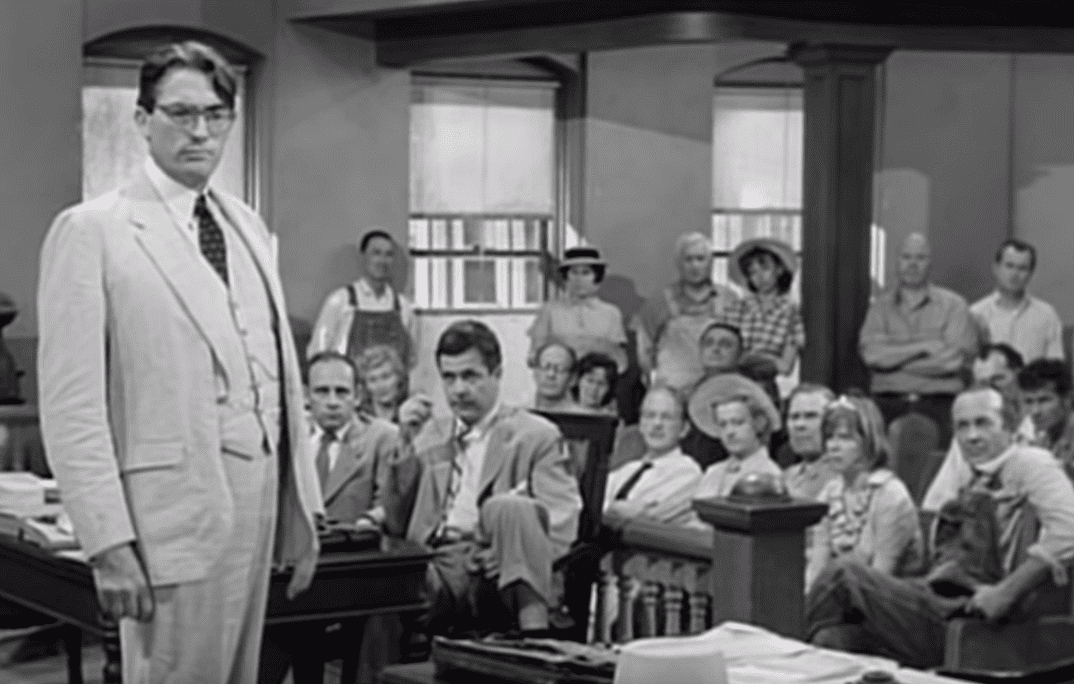 To K. a Mockingbird (1962), Universal International Pictures
To K. a Mockingbird (1962), Universal International Pictures
18. He’s the Guy!
At first, Lee wasn’t sure that Gregory Peck was right for the part of Atticus, but she swiftly changed her mind when she saw him come out of his dressing room in is Atticus suit. She later said that it was the “most amazing transformation she had ever seen” and she knew in that instant that he was Atticus.
19. Change of Heart
Truman Capote and Harper Lee grew up together, and Capote, who also knew the person who was the inspiration for Arthur “Boo” Radley, had intended to base a character on him in one of his own stories. However, when he saw how beautifully Lee wrote the character in To Kill a Mockingbird, he decided not to use it after all
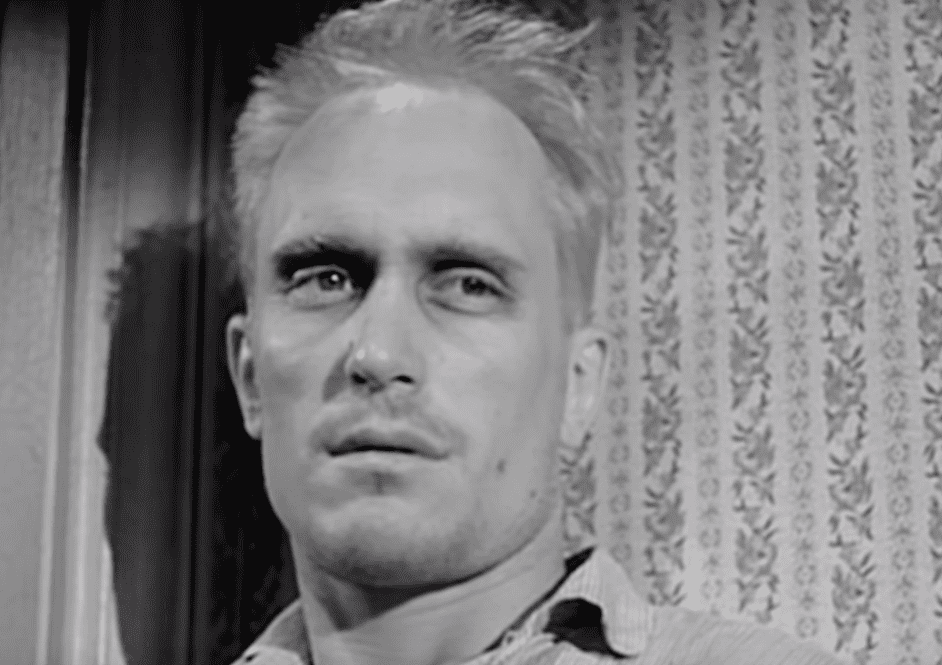 To Kill a Mockingbird (1962), Universal International Pictures
To Kill a Mockingbird (1962), Universal International Pictures
20. Greatest Literary Hero
In 2002, the now-defunct Book Magazine put together a panel of 55 authors, literary agents, editors, and actors to name the top one hundred characters in literature since 1900. Atticus Finch ranked #7 on the list, ranked just below Sherlock Holmes. To nobody’s surprise, the character also ranks at the top of several lists for fiction’s greatest dad, for the strong moral values he instilled in his children.
21. Must Read
You can always count on a librarian for a solid list of must-read books, and in 2006, a group of British Librarians voted To Kill a Mockingbird as the book that every adult must read before they pass. The book also took second place in a survey of favorite happy endings, with Jane Austen’s Pride and Prejudice topping that list.
22. Not Ready for Publication
Lee never wrote another novel after publishing To Kill a Mockingbird, but in 2015, Harper Collins published Go Set a Watchman. While it was promoted as a sequel, it was actually finished in 1957, before Mockingbird, and was really the extremely rough first draft of the novel we know and love.
23. The Exception, Not the Rule
When a book is adapted for film, the author is often unhappy with the process and the result. Not so for Lee, who loved the screenplay and the film, and became lifelong friends with Peck after the film.
 The Omen(1976), 20th Century Fox
The Omen(1976), 20th Century Fox
24. Getting to Know Her
Though Lee passed in 2016, visitors continue to flock to Maycomb to see the inspiration for the town where To Kill a Mockingbird is set. The town now houses a museum with a permanent exhibit dedicated to Harper Lee (as well as one for Truman Capote), and visitors can walk through the courtroom that was replicated for the film.
25. Needs Work
Lee sent the manuscript of To Kill a Mockingbird to 10 publishers, all of whom rejected it. Eventually, publisher Lippincott accepted the manuscript because they were impressed by the author, but thought it needed a lot of work. According to Lee, what followed was “a long and hopeless period of writing the book over and over again” until its publication in 1960.
26. Low Expectations
Amazingly enough, Lee had very low expectations for the novel and didn’t even expect it to sell. In fact, she was so frustrated by her own difficulties in writing and revising it that she threw the manuscript out the window and into the snow. Luckily, her editor refused to let her give up, and insisted that she go outside and pick up the pages.
27. Taking Her Time
Lee was definitely not your churn-em-out type of writer. Instead, she was slow and methodical. She reportedly spent anywhere between 6-12 hrs at her desk each day, often with only a single page to show for it.
28. Unfounded Rumors
At one time, there was a rumor going around that Lee didn’t write Mockingbird and that Truman Capote was the true author. Not only did Capote not write it, but he never even saw a draft. Lee showed him a finished, ready-for-print copy while accompanying him on a trip to Kansas to research In Cold Blood. Lee’s sister called the rumor “the biggest lie ever told".
29. I Wish I’d Never Written It
Lee once told her friend and next-door neighbor author Marja Mills that she wished she’d “never written the darn thing". Years later, Mills reminded her of what she’d said and asked if she still felt that way. Harper responded with “sometimes, but then it passes".
30. A Meaningful Gift
After the film was finished, Lee gave Peck her father’s actual watch because he reminded her of him. The resemblance was so strong, that actress Mary Badham, who played Scout in the film, remembered Lee standing off to the side with tears in her eyes because she thought he had a “little potbelly” just like her dad.
31. Let it Speak for itself
Lee continually refused to write an introduction for the later versions of To Kill a Mockingbird, because she wanted the book to speak for itself without additional explanation.
32. A Time to Kill a Mockingbird
John Grisham is one of the most successful authors of lawful thrillers today, but his first novel A Time to Kill has many parallels to Lee’s novel. Like Mockingbird, it’s a courtroom drama set in a fictional southern town, was influenced by a real-life offence, and it explores themes of social injustice and brutality. Grisham cited To Kill a Mockingbird as an influence, and comparisons have been drawn between the two books.
33. All I Want
In her last full interview given in 1964, Lee expressed a desire to “be the chronicler of something that I think is going down the drain very swiftly,” and to be the “Jane Austen of South Alabama". Unlike Austen, Lee never published a true second novel, but she certainly made her mark.
34. Mostly Positive
The majority of the reviews for To Kill a Mockingbird were glowing, calling the book a “wonderfully absorbing story” and a novel of “tactile brilliance". The critic from the Atlantic Monthly didn’t quite agree with the praise, calling the novel “sugar-water served with humor". That critic probably had to eat crow when it went on to win the Pulitzer!

35. Disney’s Lament
When Walt Disney saw the film adaptation of To Kill a Mockingbird, he was stuck in a creative rut producing family comedies such as The Parent Trap and The Absent-Minded Professor, and wistfully commented that it was the kind of film that he wished he could make.
36. Inspiring Lawyers
Atticus Finch’s character also had a lasting impact on the law profession, lauding him as a shining example of what lawyers aim to be. The Alabama Law Society founded the Atticus Finch Society with the goal of ensuring access to justice for all Alabama residents regardless of social or financial status, just like Atticus would have done.
37. Opposition
Before Aaron Sorkin’s stage version of To Kill a Mockingbird could open on Broadway, they had to deal with a lawful battle from Lee’s estate. Sorkin’s version of Atticus Finch was a man who smoked, drank, kept a piece, and swore. Lee's family insisted that it deviated from the spirit of the novel, and wanted to ensure that the play not “put any spin on the characters".
38. Not Your Mother’s Mockingbird
If you are lucky enough to score tickets to see To Kill a Mockingbird on Broadway, be warned that it isn’t quite the same as the book you read in school or even the movie. Playwright Aaron Sorkin realized that to make the story work for the stage in the 21st century, he needed to find a way to tackle some of the story’s more difficult topics in a fresh way. While the play remains true to the spirit of the novel, it has a much less innocent perspective from the book, and places more emphasis on the events surrounding the trial.
39. Making History
The stage version of To Kill a Mockingbird became the highest-grossing American play in history in March 2019 with a record-breaking gross of $40,113,926.13 since its opening in December 2018. This broke the earlier record set by Terrance McNally’s 2014 It’s Only a Play, which starred Matthew Broderick and Nathan Lane. The production has also shattered records for the Schubert Theatre and has been consistently been performing at 100% capacity.
40. He Has No Say
Gregory Peck didn’t feel that the title accurately reflected the story and petitioned to change it without having read the script. Lee’s agent was livid at the suggestion and wrote to the publisher to assure him that Peck had no influence over the movie’s title. Peck ultimately dropped the idea after the producers publicly stated that there would be no change.
41. Strained Friendship
According to Lee’s sister Alice, as To Kill a Mockingbird’s success grew, Capote became increasingly jealous of Lee, putting a strain on their friendship. Apparently, he’d expected to receive a Pulitzer for In Cold Blood, and was miffed that Lee received one and he didn’t. Talk about sour grapes.
42. Give it a Shot
In the mid-1950s, Lee really wanted to write full-time, but to do so takes money that she didn’t have. For Christmas 1956, her friends gifted her with a year’s worth of salary so that she could quit her day job and write. The end result of that effort was To Kill a Mockingbird, so the gift was definitely worth it!
Sources: 1, 2, 3, 4, 5, 6, 7, 8, 9, 10, 11, 12, 13, 14, 15, 16, 17, 18, 19, 20, 21, 22, 23, 24, 25, 26, 27, 28, 29, 30, 31, 32, 33, 34, 35

